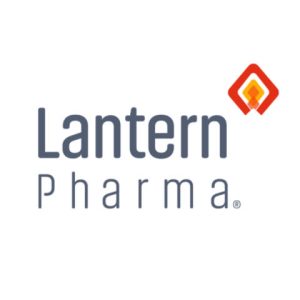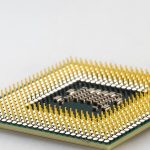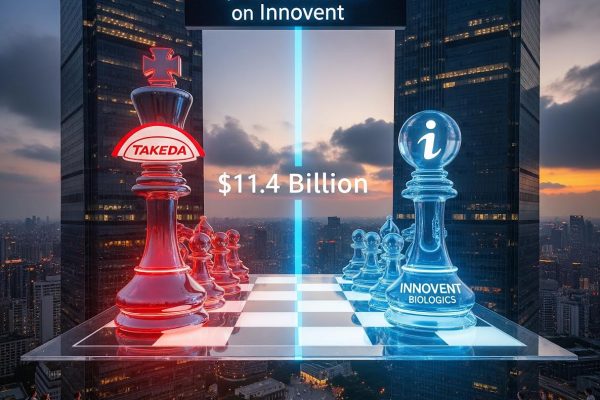
Rare pediatric diseases are defined by the FDA as serious or life-threatening conditions primarily affecting children under 18, with fewer than 200,000 cases in the U.S. A key benefit of obtaining a rare pediatric disease designation ( RPDD) from the FDA is the potential to receive a priority review voucher following FDA approval of a product with RPDD if the marketing application submitted for the product satisfies certain conditions, including approval prior to September 30, 2026 unless changed by legislation. These vouchers, often called “golden tickets,” can significantly expedite the review process for future NDAs or biologic license applications, reducing the standard review time from about ten months to six. Sponsors can either use these vouchers themselves or sell them to other companies. These vouchers, in the recent past, have commanded sales prices of approximately $100 million USD.
AI Firm Lantern Pharma Inc. (NASDAQ: LTRN) is making remarkable strides in AI-driven cancer therapy development, with promising clinical trials across multiple drug candidates showing encouraging results. The company’s innovative approach, combining artificial intelligence with targeted therapies, is paving the way for potentially transformative treatments in oncology, offering hope for improved outcomes for cancer patients worldwide. On September 23, Lantern Pharma announced that it has as achieved a significant milestone in its quest to revolutionize cancer treatment. The FDA has granted the company three rare pediatric disease designations for its investigational drug candidate LP-184, targeting malignant rhabdoid tumors, rhabdomyosarcoma, and hepatoblastoma.
Lantern Pharma’s RPDD Achievement
Targeted Pediatric Cancers
The rare pediatric disease designations granted to Lantern Pharma focus on three devastating childhood cancers: malignant rhabdoid tumors (MRT), rhabdomyosarcoma (RMS), and hepatoblastoma. MRT primarily affects infants and toddlers, with an average diagnosis age of 15 months and only 35 to 50 new cases diagnosed annually in the United States. RMS, the most common childhood soft-tissue sarcoma, develops in the body’s soft tissues and affects approximately 250-300 children annually in the U.S. Hepatoblastoma, the most common primary malignant liver tumor in pediatric patients, typically occurs within the first two years of life and accounts for about 1% of all pediatric tumors in North America and Europe. These designations highlight Lantern Pharma’s commitment to addressing rare and often overlooked pediatric cancers, potentially offering new hope for young patients and their families.
AI-Driven Cancer Therapy
At the forefront of oncology innovation, Lantern Pharma’s RADR® AI and machine learning platform is revolutionizing targeted cancer therapies. This cutting-edge technology guides the development of multiple clinical-stage drug programs, including LP-300, LP-184, and LP-284, each showing promising results in ongoing trials. The platform’s capabilities extend beyond drug discovery, encompassing patient biomarker identification and combination therapy optimization, positioning RADR® as a potential industry standard for AI-driven oncology drug development. With plans to enhance its generative AI capabilities for both small molecule and ADC development, Lantern Pharma is poised to accelerate the creation of more effective and personalized cancer treatments.
Clinical Trials Progress
Promising advancements have been made across Lantern Pharma’s clinical trials portfolio. The Harmonic™ Phase 2 trial for LP-300 demonstrated an impressive 86% clinical benefit rate in the initial 7-patient safety lead-in cohort, with no dose-limiting toxicities observed. Meanwhile, the Phase 1 trials for LP-184 and LP-284 are progressing well, with over 40 patients dosed to date and no dose-limiting toxicities reported. These encouraging results are complemented by significant progress towards developing a molecular diagnostic for LP-184, which aims to improve patient selection and stratification in future oncology trials.
Strategic Collaborations
Lantern Pharma has forged strategic partnerships to accelerate drug development and expand its reach. A notable collaboration with Oregon Therapeutics leverages the RADR® AI platform to optimize the development of XCE853, a potent inhibitor of cancer metabolism. This partnership aims to refine and expand the positioning of XCE853 in new oncology indications, including drug-resistant tumors. Additionally, Starlight Therapeutics, a wholly owned subsidiary of Lantern Pharma, is advancing the development of STAR-001 for recurrent glioblastoma (GBM), with site selection and feasibility studies underway for a Phase 1B/Phase 2 trial. These collaborations demonstrate Lantern Pharma’s commitment to fostering innovation and expanding its therapeutic pipeline through strategic partnerships. This week another Lantern collaborator and a share holding of Lantern, Actuate Therapeutics (ACTU, $5.80, Mkt cap $110.85M), a clinical stage biopharmaceutical company focused on developing therapies for the treatment of high impact, difficult to treat cancers, announced the closing of its previously announced initial public offering of 2,800,000 shares of its common stock, at a price of $8.00 per share to the public for a total of $22,400,000 of gross proceeds to the Company, before deducting underwriting discounts and offering expenses. In addition, the Company has granted a 30-day option to the underwriters to purchase up to 420,000 additional shares, representing 15% of the shares sold in the Offering, solely to cover over-allotments, if any, at the initial public offering price, less the underwriting discounts and commissions. All of the shares are being offered by the Company. The shares began trading on August 13, 2024 on the Nasdaq Global Market under the symbol “ACTU.”
Global Expansion and Impact
Expanding its global footprint, Lantern Pharma is initiating clinical trial sites in Japan and Taiwan for the Phase 2 Harmonic™ study. This strategic move aims to accelerate data collection and potentially bring a much-needed therapeutic option to never-smokers with NSCLC in these regions, where the incidence of this cancer type is significantly higher than in the United States. Dr. Yashushi Goto, a renowned lung cancer researcher at the National Cancer Center of Japan, will lead the trial in Japan, enhancing the company’s positioning for potential collaborative partnerships with global biopharma companies focused on Asian markets. This expansion not only addresses a critical medical need but also taps into an estimated annual global market potential of over $2.6 billion for the treatment of never-smokers with NSCLC.
Here’s What the CEO Says:

Panna Sharma is the President, CEO, and Board Member of Lantern Pharma Inc.
“At Lantern, we’re harnessing AI and data-driven approaches to revolutionize cancer drug development, aiming to dramatically reduce costs, accelerate timelines, and enhance precision in bringing new therapies to patients. Our recent breakthrough in identifying three additional, high-potential indications for LP-184 in pediatric cancers exemplifies this progress. We believe that ‘AI for good’ should address both blockbuster opportunities as well as rare, often overlooked pediatric cases. The FDA’s Rare Pediatric Disease designation for these three potential programs is a testament to this commitment. We’re acutely aware that patients and their families are relying on innovators like us to speed up therapy development. These designations mark a crucial step forward in advancing our expanding portfolio of pediatric programs targeting these devastating and rare cancers. It reinforces our dedication to transforming hope into tangible solutions for those who need them most,” said Panna Sharma, President and CEO of Lantern Pharma.
Quick Highlights From Lantern’s Q2 2024 Update on August 8, 2024.
-
Active clinical trials across three AI-guided drug candidates with additional ADC-based preclinical molecules in evaluation for development.
-
Preliminary patient data and clinical readouts for Phase 2 LP-300 Harmonic™ Trial released showing an 86% clinical benefit rate in the initial 7 patient safety lead-in cohort.
-
Issued a Certificate of Patent by the Japanese Patent Office directed to Lantern Pharma’s drug candidate LP-284, including claims covering the new molecular entity.
-
Phase 1 clinical trials for both synthetic lethal drug candidates, LP-184 and LP-284, continue to advance with no dose-limiting toxicities observed in any of the patient cohorts enrolled and over 40 patients dosed to-date.
-
Achieved significant advancement towards key milestone in the development of molecular diagnostic for use with drug candidate LP-184 in future oncology clinical trials to improve patient selection and stratification.
-
Launched strategic drug development collaboration leveraging our AI platform, RADR®, with Oregon Therapeutics to optimize the development of first-in-class drug candidate XCE853 – a potent inhibitor of cancer metabolism.
-
Starlight Therapeutics, a wholly owned subsidiary of Lantern Pharma focused on CNS and brain cancers advanced with initiating site selection and feasibility for a Phase 1B/Phase 2 trial in recurrent GBM with drug candidate, STAR-001.
-
Launched Webinar Wednesdays, a webinar series that focuses on the areas of artificial intelligence and oncology drug development with leading physicians, scientists and Lantern collaborators.
-
Approximately $33.3 million in cash, cash equivalents, and marketable securities as of June 30, 2024.
- Here’s the link to the entire update.
Lantern Pharma website: https://www.lanternpharma.com.
 Here’s what AI Behemoth NVIDIA (NVDA) states about healthcare:
Here’s what AI Behemoth NVIDIA (NVDA) states about healthcare:
Healthcare demands new computing paradigms to meet the need for personalized medicine, next-generation clinics, enhanced quality of care, and breakthroughs in biomedical research to treat disease. With NVIDIA, healthcare institutions can harness the power of AI and high-performance computing (HPC) to define the future of medicine.
Discover how NVIDIA Partners are Accelerating the Digital Transformation of Healthcare at this link.


























































































































































































































































